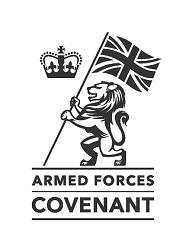|
|
|
Vimy Ridge...
This battle was part of the Battle of Arras, in the Nord-Pas-de- Calais region of France. The battle took place from
the 9th to the 12th April 1917 and was primarily fought between four divisions of Canadian Corps (supported by British 5th
Division) against three divisions of the German Sixth Army. The objective for the Canadians was to take control
of the German-held high ground (the ridge). The Canadians captured most of the 14km ridge on the first day, the town of Thelus
fell on the second day along with the crest of the ridge (Hill 145). The final day saw the Canadians capture a fortified knoll
just outside Givenchy-en-Gohelle seeing the remaining German forces retreat. The Canadian success is often
attributed to technical and tactical innovation, meticulous planning, good artillery and well-prepared troops. There is also
a question mark over the German Sixth Army failure to apply the new German defensive doctrine. The hard-fought
victory was swift, but not without considerable cost. The battle saw 10,602 casualties of which 3,598 Canadians gave their
lives. Vimy Ridge is now a National Historic Site of Canada and a tribute to all Canadians who risked and
gave their lives for freedom and peace in the First World War. Standing now at the Vimy Ridge Monument on Hill 145, looking
over the Douai Plain, it is clearly obvious why this point was advantageous to capture and hold. The memorial
park and the monument are stunning and are extremely well-maintained by the Canadian Government. .........
o O o ......... If you need Military Bands or Assistance with Honouring Veterans - Please contact your local Royal British Legion. If sadly this is for a Military Funeral or Honouring Veterans at their Funeral, the best contact points are here. The Commonwealth War Graves Commission has the responsibility to ensure that 1.7 million people who died in the two world wars will never be forgotten. They care
for cemeteries and memorials at 23,000 locations, in 153 countries. The CWGC values and aims, laid out in 1917, are as relevant
now as they were over a 100 years ago.... ......... o O o ......... We have added a number
of further pages and Picture Galleries to our website for you of The National Memorial Arboretum, the Ypres Salient, Flanders & The Menin Gate, Nord Pas de Calais, Somme, Vimy Ridge, Verdun and World War 1 Main Page and seven underpinning pages. ......... o O o ......... The images below are: Picture 1 {0140} - Huge shell holes and mine craters mark the ground on the 107 hectare site at Vimy Ridge. Picture 2 {0130} - An example of the undulating ground at Vimy Ridge. Picture 3 {0122} - Shell holes
at Vimy Ridge. Picture 4 {0120} - Canada remembers. Picture 5 {0119} - Canadian Monument at
Vimy Ridge. Carved on the walls are the names of 11,285 Canadian soldiers killed in France and whose final resting place is
unknown. More than 7,000 Canadians are buried in 30 cemeteries within a 20km radius of the Vimy memorial. 64,990 Canadians
died in WW1. At daybreak on 9th April 1917, all four divisions 0f the Canadian Corps aided by the British 5th Division, stormed
the ridge. Preceded by a perfectly timed barrage of artillery, the Canadians advanced and, by mid-afternoon, had taken
all their objectives except Hill 145 which was captured the following day. The Canadian monument now stands proudly on Hill
145 overlooking the Douai Plains. Picture 6 {0116} - The sorrowing figure of a woman represents Canada - a
young nation mourning her dead. This was carved from a 30 tonne block. A beautiful and poignant sculpture. Picture
7 {0113} - Canadian Monument at Vimy Ridge. It rests on a bed of 11,000 tonnes of concrete and the two pylons and sculptures
contain almost 6,000 tonnes of limestone. The carving was done on the site where they now stand. Picture 8
{0107} - Vimy Ridge, views over the Douai Plain, it is clear why this position was important. Picture 9 {0105}
- A German bunker relic at Vimy Ridge. The ridge was an important part of the German defence system. Picture
10 {0101} - An example of the undulating shell hole ridden terrain that forms much of the Vimy Ridge site. These
images are kindly provided by Ian Humphreys, RBL, and are his Copyright. You may click on the thumb nail images for the original
- these are high res images and may not be used for commercial purposes without full written consent from Mr Humphreys. Each
image is 3264 x 2448 pixels or 3008 x 2000 pixels and are several MB in size..
Enter content here Enter content here Enter content here |
||||||||||
AREA17: So that we may all remember those that served, those injured and those that fell for the peace
and security of all...

